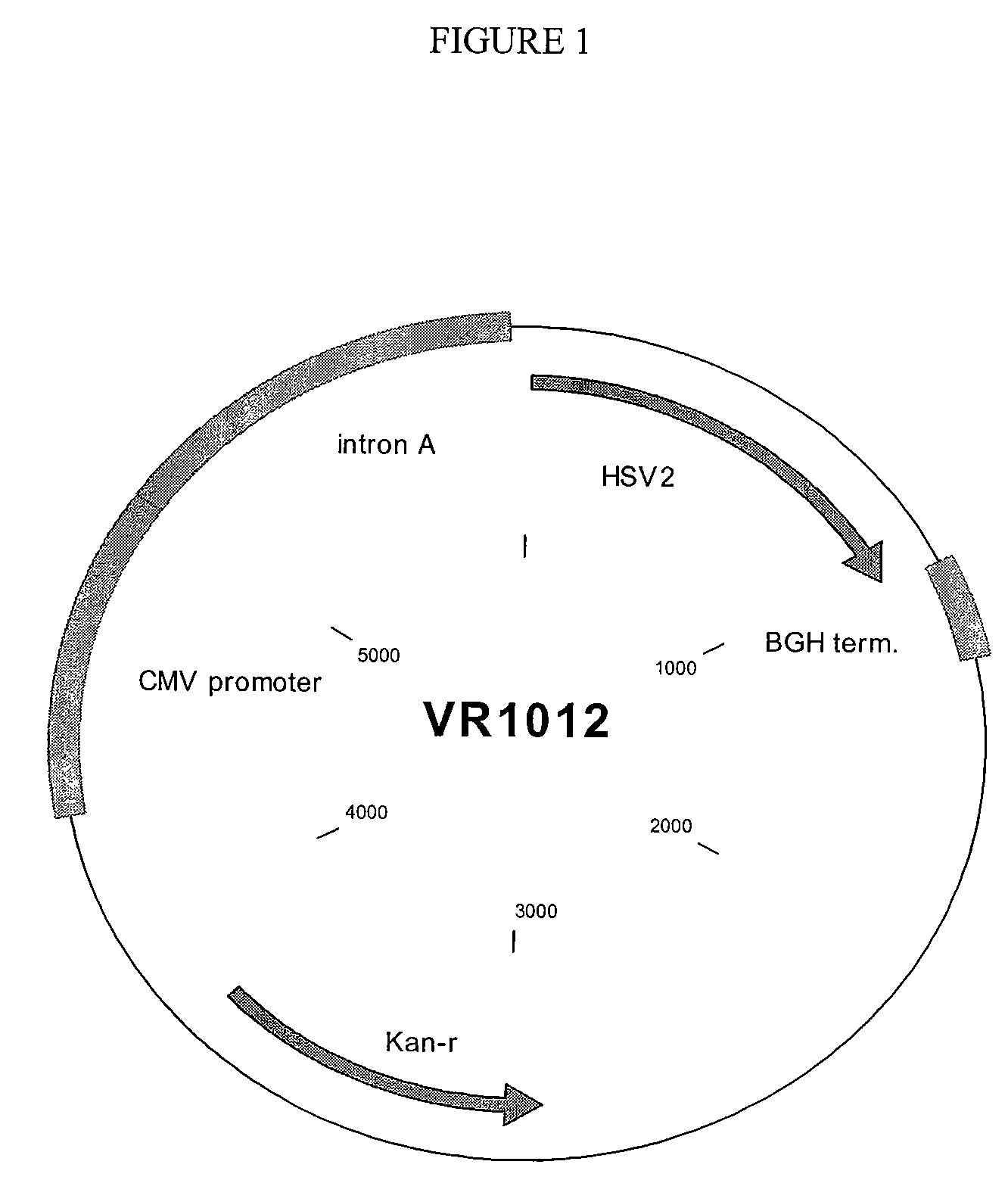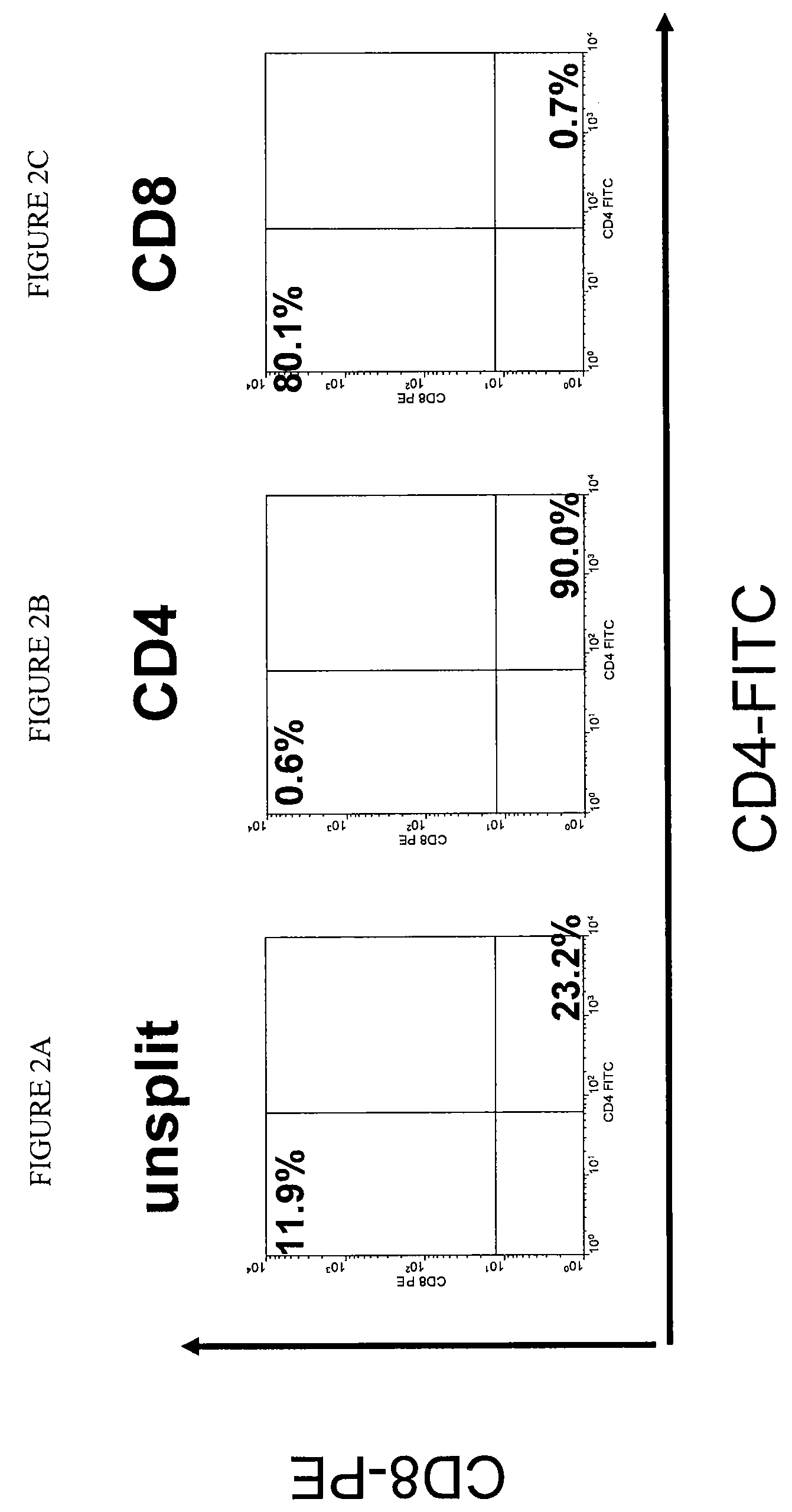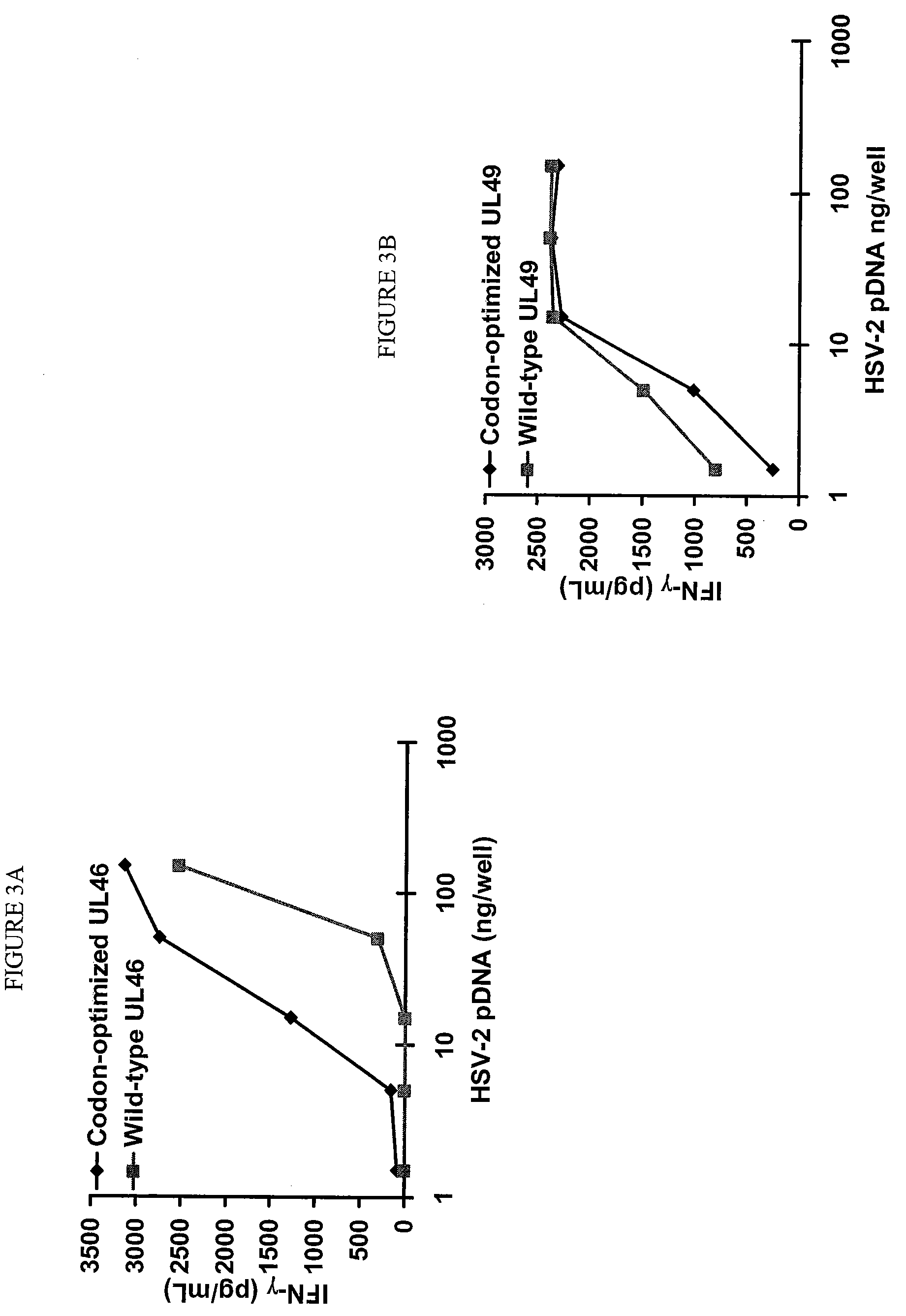Compositions and methods for vaccinating against HSV-2
a technology of herpes simplex virus and composition, which is applied in the field of compositions and methods for inducing an immune response to herpes simplex virus type 2, can solve the problems of ineffective vaccines, limited immunological response, and large difficulty in using proteins associated with certain, and achieves strong humoral response, strong cellular response, and strong immune response to hsv dna vaccines
- Summary
- Abstract
- Description
- Claims
- Application Information
AI Technical Summary
Benefits of technology
Problems solved by technology
Method used
Image
Examples
examples
[0247]Materials and Methods
[0248]The following materials and methods apply generally to all the examples disclosed herein. Specific materials and methods are disclosed in each example, as necessary.
[0249]The practice of the present invention will employ, unless otherwise indicated, conventional techniques of cell biology, cell culture, molecular biology (including PCR), vaccinology, microbiology, recombinant DNA, and immunology, which are within the skill of the art. Such techniques are explained fully in the literature. See, for example, Molecular Cloning A Laboratory Manual, 2nd Ed., Sambrook et al., ed., Cold Spring Harbor Laboratory Press: (1989); DNA Cloning, Volumes I and II (D. N. Glover ed., 1985); Oligonucleotide Synthesis (M. J. Gait ed., 1984); Mullis et al. U.S. Pat. No. 4,683,195; Nucleic Acid Hybridization (B. D. Hames & S. J. Higgins eds. 1984); Transcription And Translation (B. D. Hames & S. J. Higgins eds. 1984); Culture Of Animal Cells (R. I. Freshney, Alan R. Liss...
PUM
| Property | Measurement | Unit |
|---|---|---|
| concentration | aaaaa | aaaaa |
| molar concentration | aaaaa | aaaaa |
| concentration | aaaaa | aaaaa |
Abstract
Description
Claims
Application Information
 Login to View More
Login to View More - R&D
- Intellectual Property
- Life Sciences
- Materials
- Tech Scout
- Unparalleled Data Quality
- Higher Quality Content
- 60% Fewer Hallucinations
Browse by: Latest US Patents, China's latest patents, Technical Efficacy Thesaurus, Application Domain, Technology Topic, Popular Technical Reports.
© 2025 PatSnap. All rights reserved.Legal|Privacy policy|Modern Slavery Act Transparency Statement|Sitemap|About US| Contact US: help@patsnap.com



